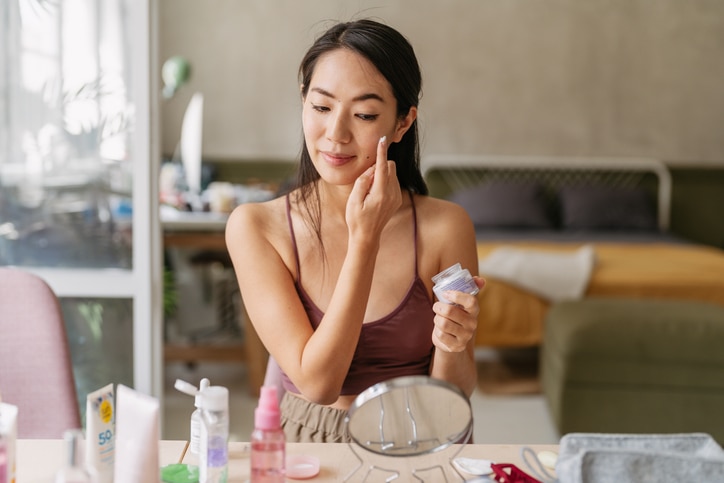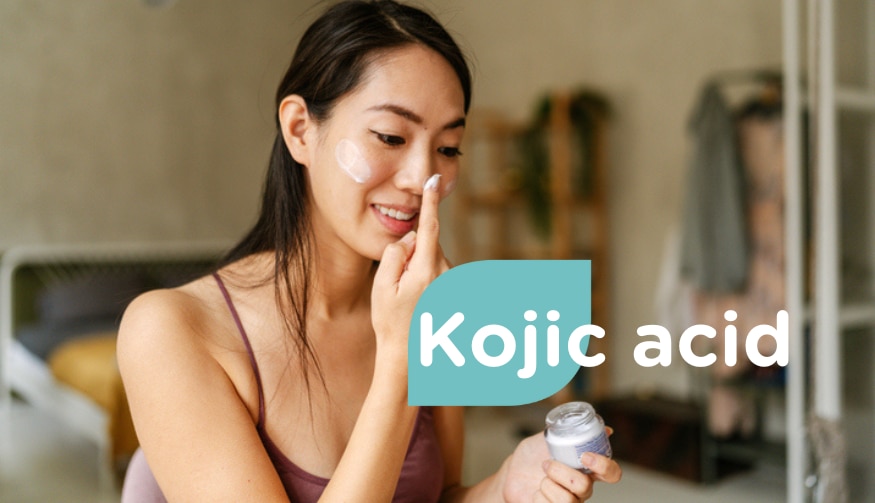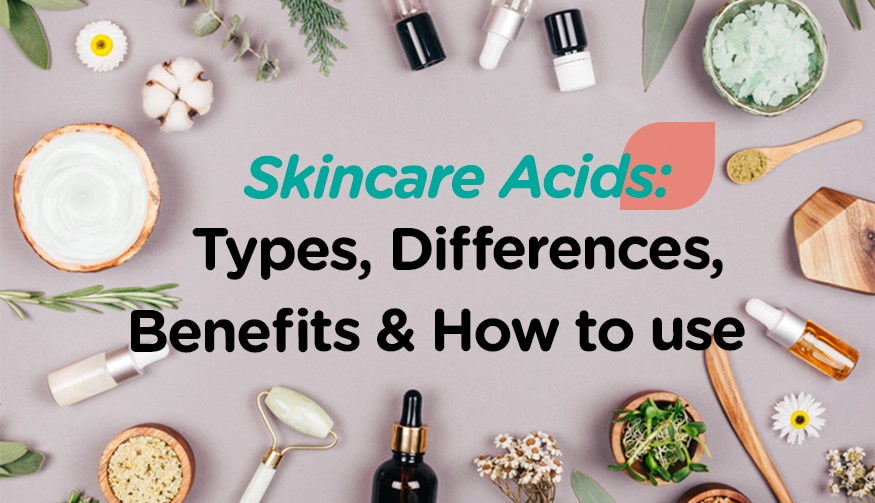If you’re on the hunt for an effective skin brightener and hyperpigmentation treatment, kojic acid deserves a spot in your skincare routine.
What is kojic acid?
Kojic acid is naturally derived from certain fermented foods such as soy sauce and Japanese sake, and it can also be made from different types of fungi.
What does kojic acid do to your skin?
Kojic acid works as a safe and effective skin lightener and brightener that absorbs into the skin. It is usually used topically to treat skin conditions involving hyperpigmentation and scarring, including sun damages, acne scars, and dark spots.

The science behind how kojic acid works on your skin is that it decrease the production of melanin—Melanin is a naturally occurring pigment in the body that gives human skin, hair and eyes their color. Dark-skinned people have more melanin in their skin that light-skinned people have.
Tyrosine is needed for the body to product melanin. While you apply kojic acid to your skin, it blocks tyrosine from forming, and in turns inhibit the production of melanin. The decrease in melanin production may thus have a lightening effect on the skin.
Possible benefits of kojic acid
- Anti-aging effect: To reduce the appearance of age spots and sun damage.
- Improve the appearance of scars: To lighten the scar so that it may look less noticeable.
- Treat melasma: To decrease the dark patches on skin caused by melasma.
- Antifungal benefits: To prevent and treat certain fungal infections, such as athlete’s foot and yeast infections.
- Antibacterial effects: To help decrease the chances of developing common types of bacterial skin infections.
How to use kojic acid products?
Kojic acid is an ingredient used in both face and body products, including soaps, serums and moisturizers.
It is generally safe to use it daily, but it should be note that if you are using kojic acid products in the morning, make sure you follow it with sunscreen.
Side effects
Generally speaking, kojic acid is better tolerated than most acids, but an allergy or irritation is certainly possible.
It is possible to experience side effects such as redness, irritation, itchiness, rashes, swollen skin, or pain and discomfort if you are using a product with a higher concentration than 1% of kojic acid.
* Discontinue use if you’re reacting to a product with kojic acid in it.












